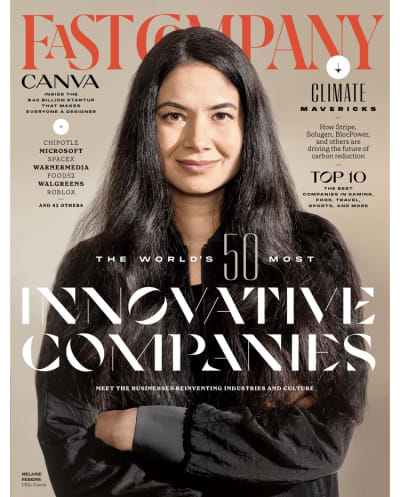With so many people contemplating a career change, it can be tempting to take a leap of faith. Quitting your day job and going all in can feel empowering, but it may be smarter to slow down and take small steps toward uncertain goals instead, say Nathan and Susannah Furr, authors ofThe Upside of Uncertainty: A Guide to Finding Possibility in the Unknown. The Furrs call this approach having “personal real options.”
“There’s this myth that you have to go all in on a project or initiative to be successful, when it’s actually better to do a personal real options approach,” says Nathan Furr.
The Furrs were introduced to the concept after interviewing Ben Feringa, recipient of the 2016 Nobel Prize in Chemistry for his work on molecular machines. The Furrs asked Feringa if he faced uncertainty on his road to a scientific breakthrough.
“He laughed and said, ‘It was all uncertainty,'” recalls Nathan Furr.
Feringa told the Furrs that he encourages his students to have at least two projects going, one certain and one uncertain. “Striving for certainty will lead you down false paths or lead you to commit too long to projects that won’t work, or to uninteresting projects that will work,” he explained.
管理学院的研究found that hybrid entrepreneurs—entrepreneurs who keep their day job while they try their new venture on the side until it shows it has legs—are more successful than entrepreneurs who quit their job to do their venture.
“Why? Because they have more time and less stress, less anxiety from the uncertainty, and they’re able to figure out the right way to go forward,” says Nathan Furr.
Defining Your Steps
Instead of quitting your day job and taking an all-in approach, the Furrs recommend defining the actions you can take towards the uncertain goal in a day, week, month, or three months. Set up in a series of tests, breaking things down into small experiments, learning and changing course as you go. Start with what feels the most important.
“It’s asking, ‘What has the greatest curiosity for me?'” says Nathan Furr. “That’s the source of energy that you want to tap into. The more successful people were the ones who focused on the thing that was most important instead of thinking they had to do everything at once.”
For example, if you want to write a book, carve out time before or after work to work on chapters. Roald Dahl worked for Shell Oil and Margaret Atwood was a barista in a Toronto coffee shop until their writing careers took off.
从那里开始,逐步进行不确定的项目,向前迈进。犁尔说,每隔几个月盘点盘点很重要,以确保该项目仍为您投入的努力提供足够的价值。问问自己:“我仍然对这个项目感到兴奋,还是变成了琐事?我还学到足够的东西以使它值得吗?”
安排签到和截止日期,使自己对他们保持一致。而且,也许最重要的是,避免什么都不做。苏珊娜·弗尔(Susannah Furr)称这种遗憾最小化。“不断针刺你的东西是什么?”她问。“您真正想成为一部分的事情,而您只是不花时间?您如何计划实现它?”
Uncertain goals can feel challenging when you take them step by step. Failure is a possibility, but the lessons it brings can lead to new opportunities that are even better, says Susannah Furr. “Reframe uncertainty to being the portal to possibility,” she says.

